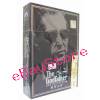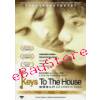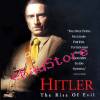
01Feb2026 - 12:22 29 AM
English
Die Nibelungen 尼伯龙垠之歌 DVD
Code : 9787885882891
| Price : | |
| Weight : | 300 g |
| Staring : | Theodor Loos , Hanna Ralph , |
| Director : | Fritz Lang , |
| Genre : | Classic , Detective / Action , |
| Subtitle : | Chinese , English , |
| Video Format : | NTSC , |
| Discs : | 2 |
| Region Code : | ALL , |
| Model : | DVD , |
One of the greatest artistic and technical achievements of the German silent cinema, Fritz Lang's monumental "Die Nibelungen" is a passionate retelling of Nordic legend, invested with all the resources of the colossal Ufa Studios. Scripted by Lang's wife at the time, Thea von Harbou (Metropolis), Siegfried establishes larger-than-life heroic characters who are defined by tests of valor a rigid codes of honor. In order to win the hand of Kriemhild (Margarete Schoen) Siefgriend (Paul Richter) must win a bride for her brother, King Gunther (Theodor Loos). Kriemhild's Revenge begins after the death of Siefgriend, and weaves the treacherous tale of his widow's ungodly vengeance upon his murderers. The noble qualities of the first film become liabilities in the second, as the blood oaths and vows of loyalty bring about a maelstrom of violence that results in the slaughter of entire armies (Lang would continue to explore this theme of bloodlust and revenge in such films as "Fury", "The Big Heat", and "Rancho Notorious", but never with such ferocity).
本故事根据德国中世纪传奇“尼贝仑甘利德”改编而成,分为“基克佛立德”和“克丽姆希尔德的复仇”两部份。剧情描述库山王子基克佛立德从传说中得知,如果能用丛林内的巨龙血液沐浴,就能全身刀剑不入,他立刻启程斩龙取血。当他如愿斩杀巨龙后,即赤裸站在巨龙伤口处以血沐浴,不料飘来一片树叶贴在他的背上挡住了龙血。基克佛立德自恃刀剑不入,乃出兵讨伐矮人国,夺取隐身头巾和尼贝仑甘的国宝。后来,他更凭这两样法宝之助打败了冰岛女王的武士,跟王妹克丽姆希儿特结婚。武士布鲁昆获悉基克佛立德以不当手段获胜,气愤之余诱杀了他,长矛对准被树叶贴住而未沾龙血的背部猛掷。基克佛立德应声倒地。第二部份描写一心替丈夫报仇的克丽姆希儿特,再嫁当时国势最强的芬族亚基拉王。不久,她宴请布鲁昆和他的族人,趁他们喝醉后指挥士兵将贵宾一网打尽。她这一残暴的行为触怒了贵族们,在群情汹涌下终遭杀害。
转载请注明出处,VCDDVD88.com敬上
本故事根据德国中世纪传奇“尼贝仑甘利德”改编而成,分为“基克佛立德”和“克丽姆希尔德的复仇”两部份。剧情描述库山王子基克佛立德从传说中得知,如果能用丛林内的巨龙血液沐浴,就能全身刀剑不入,他立刻启程斩龙取血。当他如愿斩杀巨龙后,即赤裸站在巨龙伤口处以血沐浴,不料飘来一片树叶贴在他的背上挡住了龙血。基克佛立德自恃刀剑不入,乃出兵讨伐矮人国,夺取隐身头巾和尼贝仑甘的国宝。后来,他更凭这两样法宝之助打败了冰岛女王的武士,跟王妹克丽姆希儿特结婚。武士布鲁昆获悉基克佛立德以不当手段获胜,气愤之余诱杀了他,长矛对准被树叶贴住而未沾龙血的背部猛掷。基克佛立德应声倒地。第二部份描写一心替丈夫报仇的克丽姆希儿特,再嫁当时国势最强的芬族亚基拉王。不久,她宴请布鲁昆和他的族人,趁他们喝醉后指挥士兵将贵宾一网打尽。她这一残暴的行为触怒了贵族们,在群情汹涌下终遭杀害。
转载请注明出处,VCDDVD88.com敬上






















